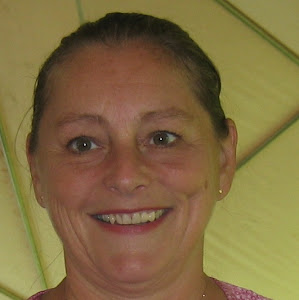At first look, it would seem that helping to develop jobs and the economy in Mariakani, Coast Province would not lend itself to the fight against the increased incidence of HIV/AIDS in my community. And yet, HIV/AIDS outreach is a part of my primary project as well as several of the smaller efforts in my community.
I am assigned to LifeWorks Shukrani. Our mission is to make things and build people up for safer lives. The things we make are table top items and fashion accessories. We build people up by providing employment, education and life skills to make better choices. Mariakani has a higher than normal incidence rate for HIV/AIDS. We are a trucker community right at the first weighbridge out of the Mombasa port. Trading sex for food and money to buy food is a routine activity here. By providing jobs (we now have 32 people gainfully employed) we break the cycle of poverty that results in acts of desperation by women and older orphans to feed their families.
An integral part of our orientation program for new hires is a two hour segment on HIV/AID that takes an interactive approach to information sharing. The group is broken into teams of 2 - 4 people and they are given 5 -10 minutes to write down everything they know about HIV/AIDS and at least two questions on what they want to know. It is interesting to watch the groups cross share. I only have to act as a "color commentator" or be consulted to clarify information put forth by the teams. Their questions spur good group discussion. It limits the need for me to be the only subject matter expert in the room. My ending question is not about what they know, but about how they can incorporate the information into their personal behaviors and then lead a discussion on the difficulty level of implementation and how to overcome barriers they might face.
Additionally, I have been working with the Orphans and Vulnerable Children's Cluster Leadership. There are over 6,000 orphans in our sub-district and many more that come from single parent homes as a result of AIDS. The cluster has been very effective in providing educational opportunities, nutrition programs and home support to this very needy group. Their programs are similar to HeadStart programs in America. Almost all the outreach is a result of the churches, mosques and other religious groups coming together to tackle the devastation to our children as a result of the HIV/AIDS. Making sure that in every service provided by the group, the children are receiving good information that is age appropriate. The leaders act as role models; blend in education on gender roles, alcohol abuse and other issues that effect our community.
Since HIV/AIDS affects all of us, I often ask groups I work with if they understand the implication for our community of our prevalence rate. It is always shocking to them to learn that as many as 2 out of ten people in the room are probably HIV positive. Talking about how that effects the person, their families and the economic development of our community is a powerful way to get them thinking about what role they can play in fostering personal responsibility.
HIV/AIDS is a part of life in Kenya, lowering the number of new infections and coping with the results of "life with AIDS" must be a part of every ones role, even a PC SED/IT Volunteer.
Subscribe to:
Post Comments (Atom)

No comments:
Post a Comment